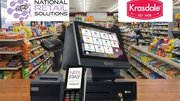Article
Amazon explores private label opportunity
The online giant, like many other retailers, is looking to strike gold with the introduction of a new private label line.

July 6, 2009
What follows is an excerpt from one of RetailWire's recent online discussions featuring commentary from its "BrainTrust" panel of retail industry experts.
The Spanish came to the New World in search of gold. Now it appears as though Amazon.com, like many other retailers, is looking to strike gold with the introduction of a new private label line. One, not coincidentally, that is named after Vincente Yáñez Pinzón, the Spanish explorer who first captained the Nina on the expedition led by Christopher Columbus in 1492 and later discovered the Amazon River.
Amazon.com has a page dedicated to a line of products for the home including furniture, bedding, sheets, kitchen gadgets and more, proclaiming, "Pinzon Style is Your Lifestyle."
The Amazon Strategies blog by Channel Advisor CEO Scot Wingo noted that a Pinzon search on Amazon turned up 551 items. Interestingly, 100 Pinzon products were also for sale on eBay. Responses to the post brought to light other Amazon-owned brands including Strathwood (outdoor furniture) and Denali (bench and power tools).
A piece on the Fast Company website concluded, "The fact that a pioneer of online retailing and maker of such forward-looking products as the Kindle is dabbling in private label linens and patio furniture speaks well of the dexterity of Amazon's leadership. The company can make money selling e-readers, but it can also make money selling miter saws. The move into private labels means Amazon is competing with its obvious online rivals like eBay, but it's also staying competitive with storefront rivals like Target or Kohl's."
| |||||
 | SPECIAL REPORT...Order Now! The 2009 Self-Service Consumer Survey is a complete refresh and update of our hugely popular 2007 edition. This special report lets you into the minds of consumers to discover how they really feel about kiosks, self-checkout and other types of self-service. Find out what works, what doesn’t, and what makes the difference between a device that helps your business and one that just gathers dust. | ||||
Discussion Questions for the BrainTrust panel:
What is your reaction to Amazon.com moving into private label goods? Why do you think the normally publicity-seeking Amazon has been so low-key about its move into private labels?
RetailWire BrainTrust comments:
Having long contended here that Amazon is the best retailer in the world, it is no surprise and entirely appropriate that they move into PL. Amazon and its team know their business, clearly have dexterous leadership (and likewise other "levels" of management skill) and more than anything, they know their customers.
Bezos' obsession with customers should be a lesson to every retail CEO. That obsession clearly cascades throughout the organization.
In terms of the low profile strategy, there are times to step on the gas and times to stay in control. PL is a way to leverage a customer franchise and create a halo from non-PL branded goods to create sell through at higher margin. There is no need to be overly promotional, certainly not at this point.
Finally, a side note related to Best Buy's numbers: they didn't mention Amazon by name but there's no doubt in my mind, as suggested here a while back, that Circuit City's demise was a boon to Amazon more than BBY.
- Phil Rubin, CEO, rDialogue
It's relatively easy to create a line of commodity type private brand merchandise. Those of us with sourcing experience could do it in 3 months with two trips to China. Even delivering decent quality at a good price isn't all that tough. The challenge for Amazon isn't "can we do this" but rather "how do we do this" and fit it within the existing model. Doing it is easy. Making enough money off it to make it worthwhile is not. As far as I can tell, the "investment" in private brands to date involves buying a line from some manufacturer, putting the pictures up on Amazon, and hoping that customers find them.
Kindle bears no relationship to lines of private brand commodity merchandise. It is patent protected, for all intents and purposes a single product, and linked to the e-books download value stream.
I'm not seeing this as the strategic direction others have commented on. How is it even possible, given the existing model, for Amazon to provide preferential treatment or promotion to the private brands? The brands aren't listed under Amazon Exclusives (why?) nor are they featured or called out on home pages, category landing pages, or any search I ran in a limited (30 min) trial. How is the consumer supposed to know they exist? What's the call to action to purchase?
I'm perplexed. Sure, they'll sell some. Everyone sells "some" if posted on Amazon and not horribly overpriced. Still....
- Don Delzell, Chief Executive Officer, Future Merchants
The greatest challenges when you move from branded marketing to private label are (1) rate of change, (2) margin level and (3) competitive set, both traditional and alternative. Two of the categories discussed are very sensitive to such pressures.
Consumer electronics is a low margin business with a high level of change. Each season, new technologies are launched which more and more quickly cannibalize existing products (see iPod touch and Blu Ray for example). It is difficult for a company to invest in private label when the products are changing so rapidly.
Groceries have long been a business with a strong competitive set, new alternatives (see rise of club stores, Target and Wal-Mart) and low overall margins. You add all of these up, and it will be hard for Amazon to provide products cheaper than Wal-Mart, more convenient than the local market and with higher quality than existing branded products.
Cosmetics and sporting goods are markets which have been a bit more stable, with fewer new entrants and higher margins. Those markets may provide the necessary margins, based on their market structure.
If Amazon pays attention to the three key factors: margin, competition and rate of change, they will succeed, because few companies execute as cleanly as they do.
- Mark Price, Managing Partner, M Squared Group, Inc.
This is an interesting topic in that I would contend that Amazon does not think of these items as Private Label. Rather, they are taking a full brand marketer approach. To a great extent this is why they are proceeding as they are allowing the brands to grow like any other new entrant to their marketplace and not trying to "tilt the playing field" in their direction. Often (and my space is CE) the motivation is only margin and that can lead to poor product or overreaching of competence. In Amazon's case they have or are building the full competence and like any other vendor trying to fill needs, conquer pain and delight their consumers. The Kindle is a great example as it is not cheap, certainly fills a gap and shows full PM skills.
I expect to see Amazon proceed carefully and deliberately to make themselves a full competitor in areas where they feel they will make a difference and to defer to others who can do it better where they cannot. Mr. Bezos and team truly are their customer advocates and this is why their PL effort is different though other retailers can certainly adopt this tactic if they are willing to forgo some of the common requirements most have in taking on PL which is more often simply to gain margin.

 ChatGPT
ChatGPT Grok
Grok Perplexity
Perplexity Claude
Claude




